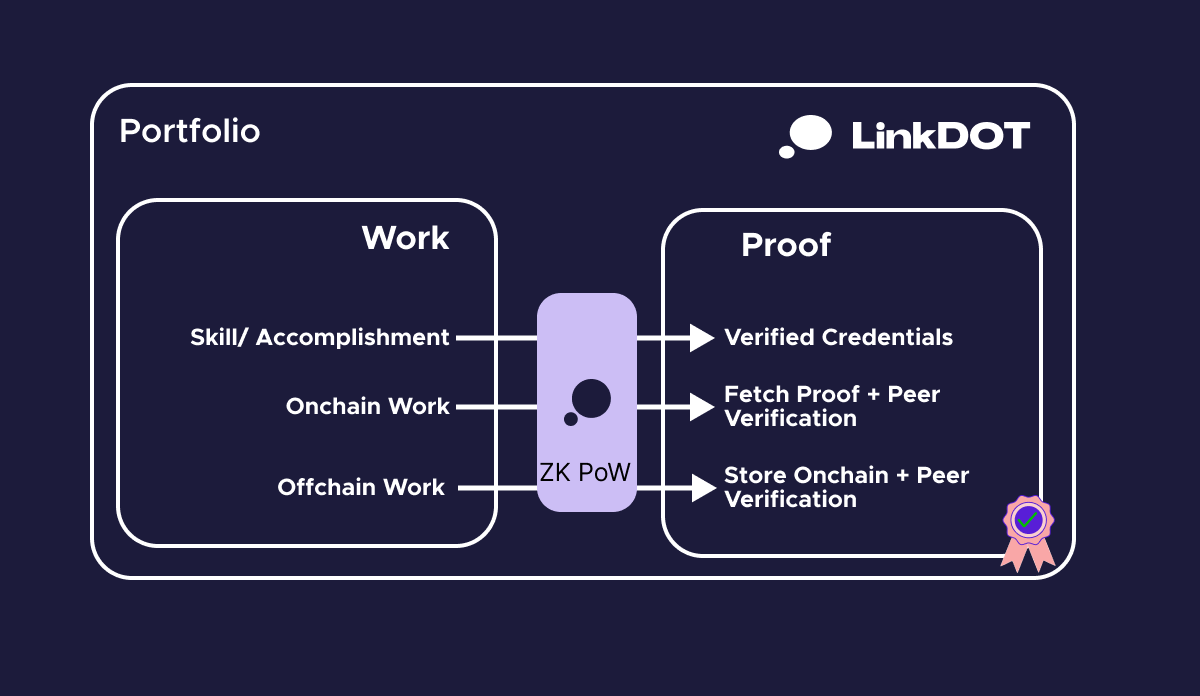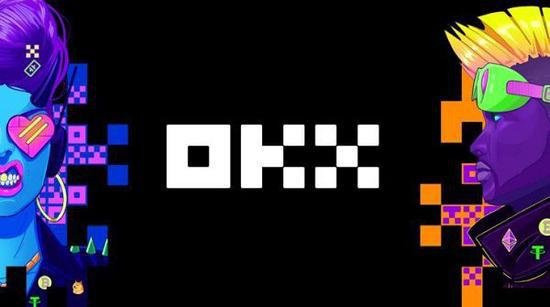In the continually evolving realm of the Future of Work, there lies a tapestry of ideas, some realized, others left as footprints in the sands of possibilities.
This blog series, Imperfect Perspectives, is a testament to the journey of exploration and innovation, a chronicle of the uncharted territories that linkDOT traverses. In this edition, we delve into the exclusive idea of Zero Knowledge Proof of Work, a pivotal idea that has emerged from many possibilities.
Why the Imperfect Perspectives Series?
The Imperfect Perspectives series is a candid revelation of the innovation journey at linkDOT. It's a celebration of ideas, even those that didn't find their way into the final product. It's about acknowledging the winding paths explored, the pivots considered, and the decisions made. It's an ode to imperfection, recognizing that not every idea becomes a reality, but each contributes to the evolution of a vision.
Why the Future of Work Matters
The Future of Work is not a distant concept; it's unfolding before us. The rise of remote work, the gig economy, and the increasing integration of technology in every aspect of our professional lives are reshaping how we perceive and engage in work. For linkDOT, understanding and adapting to these shifts is not just a necessity; it's a commitment to providing solutions that align with the changing dynamics of the professional landscape.

The future of work is being reshaped by technological advancements, changing demographics, and evolving business models. As we move towards a more digital, interconnected, and flexible world, the way we work and the tools we use are also changing. This transformation presents both opportunities and challenges.
Current Proof of Work Strategies and Challenges
In the current digital landscape, traditional proof of work strategies often rely heavily on manual verification. These systems lack the efficiency and accuracy of automated systems, leading to a time-consuming process prone to errors. Furthermore, these strategies may not adequately protect privacy or proprietary information, posing significant challenges for users.
Users often face challenges in proving the authenticity of their work, protecting their privacy, and meeting the specific requirements of different verification processes. Manual proofing can be tedious and time-consuming and may not always ensure accuracy or privacy. This has led to the search for alternatives to Proof-of-Work that are energy efficient, quick, and work efficient.
Why ZK Proof of Work?
In the digital age, proving the authenticity of work data, documents, and online repositories is a significant challenge. Traditional methods often involve tedious manual verification processes that can compromise privacy and security. This is where Zero-Knowledge Proof of Work (ZK-PoW) comes in. ZK-PoW is a revolutionary technology that allows users to prove the authenticity of their work without revealing any specific details, ensuring both the integrity of the work and the privacy of the user.
How We Do It?
At LinkDOT, we leverage advanced AI and blockchain technologies to implement ZK-PoW. Our system allows users to submit proof of their work in a way that is verifiable but does not reveal any proprietary information. This is achieved through complex cryptographic techniques that allow for verification without the need to disclose the underlying data.

Zero-Knowledge Proof of Work: A Solution
Zero-Knowledge Proof of Work (ZK-PoW) presents a revolutionary approach to these challenges. Leveraging advanced AI technologies, ZK-PoW enables users to prove the authenticity of their work without revealing any specific details. This ensures both the integrity of the work and the privacy of the user.
-
Work Submission: The journey begins with the user submitting their work for verification. This work could be a document, an image, a link, or any other type of content. The user’s initiation of this process marks the first step in the ZK-PoW journey.
-
Work Analysis: Upon submission, our system springs into action, deploying advanced AI technologies like computer vision and natural language processing to analyze the work. This crucial step helps us understand the work’s nature and sets the stage for the generation of the zero-knowledge proof.
-
Zero-Knowledge Proof Generation: After the analysis, the system generates a zero-knowledge proof that attests to the work’s authenticity. This is achieved with the help of cutting-edge Zero-Knowledge protocols like Reclaim, Hypersign ID, PolygonZK, and Work Data Oracles. These protocols ensure the proof generated attests to the work’s authenticity without revealing any specific details about the work itself. We also utilize zk-SNARKs (Zero-Knowledge Succinct Non-Interactive Argument of Knowledge), a specific type of ZKP that has been widely adopted in various proofing applications.
-
Proof Verification: The final step in the ZK-PoW process is the verification of the proof. The verifier, another user or an automated system, verifies the proof. Since the proof is a zero-knowledge proof, the verifier learns nothing about the work itself, other than its authenticity. In the realm of blockchain, zk-SNARKs can be used to verify transactions without revealing the transaction’s details, thus preserving the privacy of the parties involved. This ensures the privacy of the user’s work while still allowing for its authenticity to be verified.
-
Cross-chain Privacy Layers: In our interconnected digital world, transactions often need to be conducted across different blockchain networks. Our cross-chain privacy layers allow these transactions to occur while preserving the privacy of the parties involved.
-
User-friendly Toolkits: To further facilitate the implementation of ZKPs in blockchain projects, we’ve developed user-friendly toolkits. These toolkits simplify the process for developers to integrate ZKPs into their applications, promoting the wider adoption of this transformative technology.
Benefits
The benefits are manifold:
-
Time-saving and Efficient Proofing: The AI-powered identification and verification process saves valuable time.
-
Improved Accuracy: Reduce the risk of fraudulent submissions with enhanced accuracy and reliability.
-
Enhanced Privacy Protection: Zero-Knowledge Proofs ensure sensitive information remains confidential.
-
Customizable Verification Rules: Users can set criteria for work acceptance, ensuring high-quality approvals.
-
Integration with External APIs: linkDOT seamlessly integrates with external AI services for advanced content analysis and validation.
linkDOT is not just a platform; it's a commitment to simplifying the complexities of work documentation and reputation building. As the Future of Work unfolds, linkDOT stands at the forefront, illuminating the path towards a future where work is not just validated but celebrated.
Stay tuned for a deep dive into the uncharted territories of the Future of Work.




评论 (0)